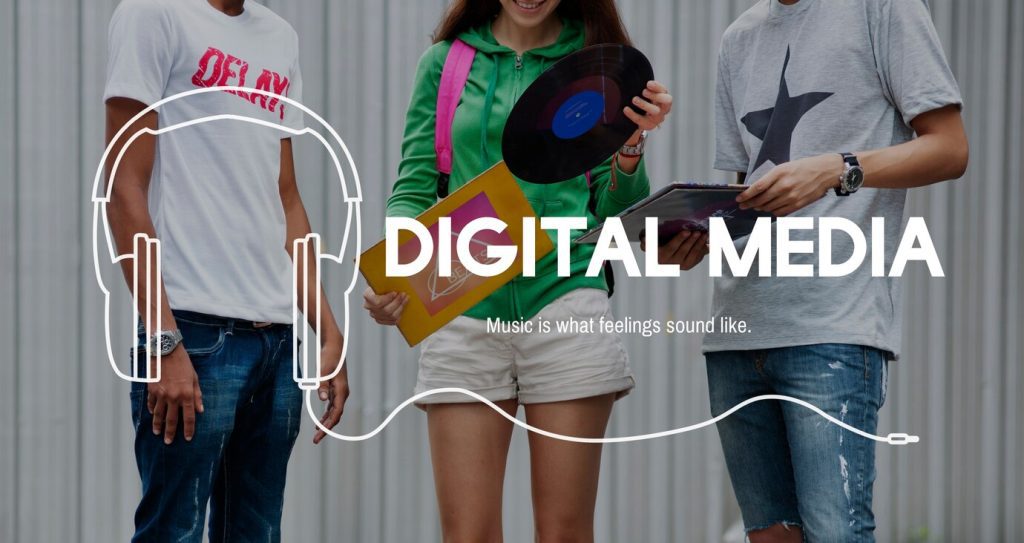Social media has evolved into a cornerstone of digital marketing, enabling brands to connect with their audiences in real time and on a personal level. As we move toward 2025 and beyond, the future of social media in digital marketing is poised for transformative changes driven by technological advancements, shifting consumer behaviors, and emerging trends. This article explores the anticipated future landscape of social media and its implications for digital marketers.

1. Hyper-Personalization Through AI and Machine Learning
Artificial Intelligence (AI) and Machine Learning (ML) are revolutionizing the way brands interact with consumers. By 2025, hyper-personalization will dominate social media marketing strategies. AI-powered algorithms will analyze user behavior, preferences, and interactions to deliver tailored content that resonates deeply with individual users. From personalized product recommendations to customized ad experiences, brands will leverage AI to enhance engagement and conversion rates.
Chatbots and virtual assistants, powered by AI, will also play a significant role in customer service on social media platforms. Instantaneous responses and proactive support will become standard expectations, further enhancing customer satisfaction and loyalty.
2. The Rise of Augmented Reality (AR) and Virtual Reality (VR)
The integration of AR and VR technologies into social media platforms will redefine user engagement. AR filters and VR experiences are already popular, but their usage is expected to expand significantly. By 2025, brands will use AR to enable users to “try before they buy,” such as visualizing furniture in their homes or testing makeup products virtually.
Similarly, VR will allow businesses to create immersive brand experiences. Virtual showrooms, events, and interactive campaigns will become key tools for marketers to captivate audiences and foster deeper emotional connections with their brands.
3. Social Commerce Revolution
Social media platforms are evolving into comprehensive e-commerce hubs. By 2025, the seamless integration of shopping features will make social commerce a dominant trend. Platforms like Instagram, Facebook, and TikTok are already enabling direct purchases, and this functionality is expected to become more sophisticated.
Social commerce will leverage AI-driven recommendations, one-click purchasing, and secure payment gateways to create a frictionless shopping experience. User-generated content, influencer collaborations, and real-time product reviews will continue to drive purchasing decisions on social platforms.
4. The Dominance of Short-Form and Snackable Content
As attention spans shrink, short-form content will remain a powerful tool for digital marketers. Platforms like TikTok, Instagram Reels, and YouTube Shorts have demonstrated the effectiveness of snackable content in capturing user interest. By 2025, brands will prioritize concise, engaging, and visually appealing content to convey their messages effectively.
Storytelling will play a crucial role in short-form content, allowing brands to evoke emotions and build connections in just a few seconds. Creative use of visuals, music, and humor will be key to standing out in an oversaturated content landscape.
5. Ethical Marketing and Authenticity
Consumers are becoming increasingly conscious of ethical practices and authenticity in brand communication. By 2025, social media marketing strategies will need to reflect these values. Brands that demonstrate transparency, social responsibility, and genuine engagement with societal issues will resonate more with audiences.
Authenticity will also extend to influencer marketing. The era of highly polished, unrealistic portrayals of lifestyles is waning. Micro-influencers and creators with genuine connections to their audiences will gain prominence, as they offer relatable and trustworthy endorsements.
6. The Expansion of Niche Communities
Niche communities on social media platforms are becoming valuable spaces for targeted marketing. By 2025, brands will invest more in building and participating in specialized groups that align with their products or services. These communities provide a focused audience, enabling personalized interactions and fostering brand loyalty.
Platforms like Discord, Reddit, and emerging micro-social networks will gain traction as hubs for niche marketing. Brands that actively engage with these communities will build trust and establish themselves as thought leaders within their industries.
7. Enhanced Privacy and Data Security
With increasing concerns about data privacy, social media platforms will implement stricter security measures by 2025. Marketers will need to adapt to these changes while ensuring compliance with regulations like GDPR and CCPA. Transparency in data usage and prioritizing user privacy will be essential for maintaining consumer trust.
Marketers will also need to find innovative ways to gather insights and deliver personalized experiences without relying heavily on third-party cookies. First-party data collection and zero-party data strategies, where users willingly share information, will gain prominence.
Conclusion
The future of social media in digital marketing is exciting, dynamic, and filled with opportunities for innovation. As we approach 2025, brands must stay ahead of emerging trends and adapt their strategies to leverage advancements in AI, AR, VR, social commerce, and ethical marketing. By embracing these changes and focusing on delivering authentic, personalized, and engaging experiences, businesses can thrive in the ever-evolving digital landscape. Social media will continue to be an indispensable tool for building relationships, driving growth, and achieving long-term success in the digital age.


